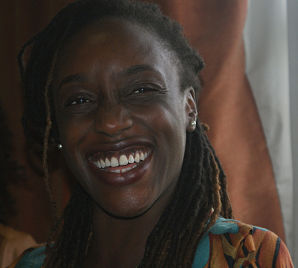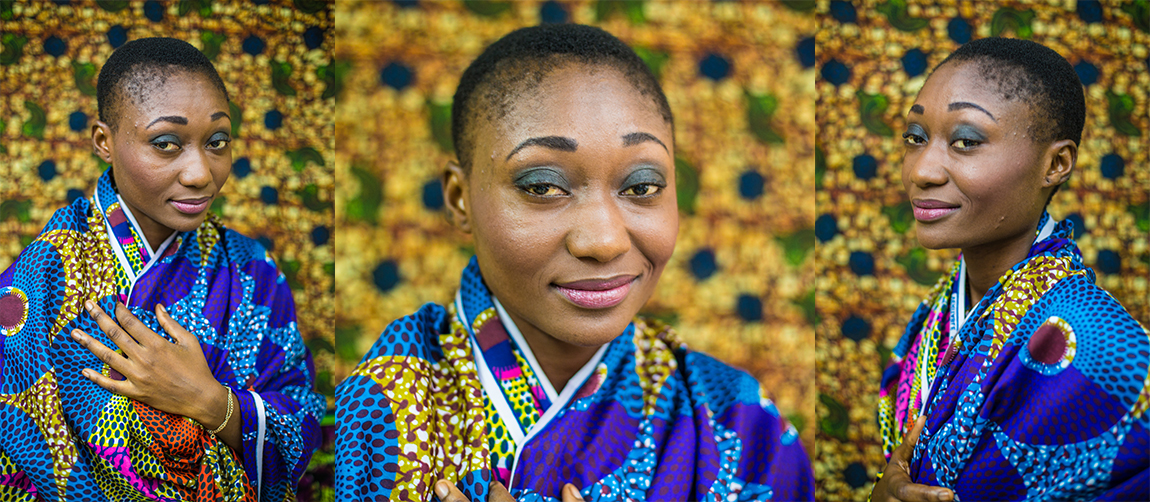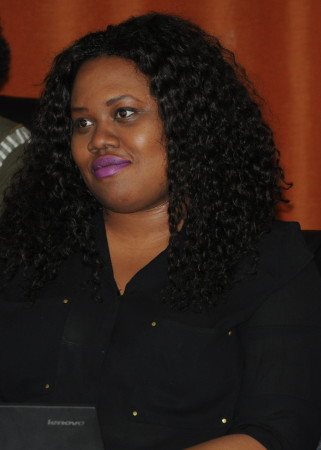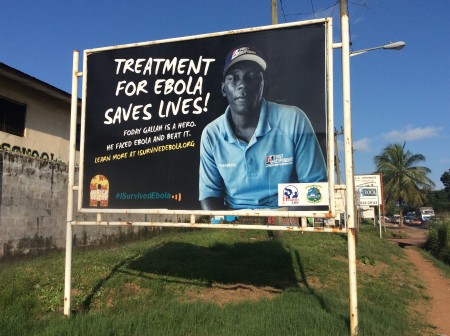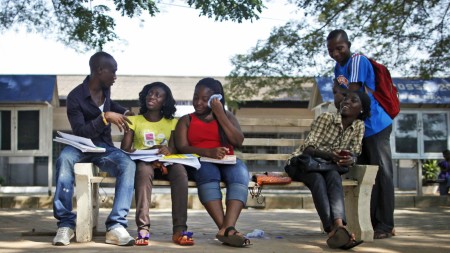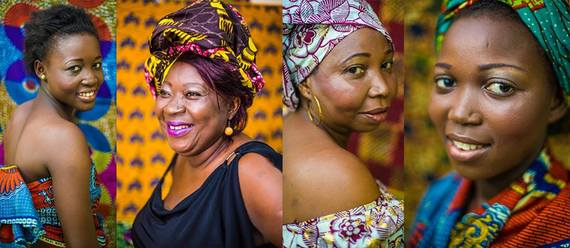
PhotoCredit: Michael Duff | Women in The Survivor Dream Project
By Fatou Wurie
Magdalene is confident as she introduces herself to the group of nineteen survivors.
“My name is Magdalene and I am a nurse, I survived Ebola. I caught it from work”. She stops there, smiles and names her gratitude for the day, “I am happy to be sitting here with all of you, alive. I am thankful to Adiatu, my darling sister for inviting me to this group. I am just thankful“.
Magdalene is brave. Her request is simple; acknowledgement from the government for the sacrifices she and hundreds of, dead or alive today, nurses made to save lives. She wants her near death experience validated in a tangible way. At the very least a discussion that her sacrifice meant something – and assurance about the future. As a survivor, she feels like an uncared for statistic; a blip in the system, numbers that get quoted repeatedly. She wants her humanity to be recognized. And the stigma to stop.
Despite an entourage of community supporters, stigma still overshadows the grace of being alive. Recent stories about Survivor’s re-infecting through sexual intercourse continue to create an environment of distrust of survivors. For the public, the message is not clear; to accept survivors or to be cautious around survivors. Without clear scientific guiding evidence, the onus lies disproportionately on survivors to get it right at being safe and that is a heavy burden which WHO alludes to as the ’emergency within the emergency’. Limited record keeping and scientific evidence about the physical and psychological effects of Ebola on survivors makes the journey of surviving incredibly difficult and complicated.
This is session five and Magdalene’s second time attending our Build Up program, a monthly gathering that offers safe space for check in and support. In this session, we divide everyone into the following groups: students, petty traders and health workers. In the group of twenty, the health workers are the most educated, with a veneer of slight privilege. They are also the least likely to emotionally breakdown.
Magdalene joins the three other health workers to engage in group-work. Forty-five minutes later the women arrange their cream chairs in a semi-circle, ready to present their group work to the rest of us – their community of cheer-leaders. Magdalene opts to go first and speak on behalf of her group.
I stare at Magdalene, observing her body language, trying to place her in the larger Ebola survivor narrative. Her eyes give nothing away. I don’t know what exactly I’m looking for, but her posture is comfortable so I check myself. Magdalene says she is grateful to be alive and that is enough.
“This is how I caught Ebola“, she begins.
“I am an out-patient nurse at Connaught Hospital, and we out-patient nurses were at the front line of the battle from the very beginning. We were the first to go, we died one by one. We were the first line of fire during Ebola. But how could we not be? We had to be, it wasn’t possible to see a patient walk into the hospital half dead and not rush to them and hold them when they were about to fall. We had little knowledge about Ebola no, forget that, even if we knew a whole lot, we didn’t have the equipment to protect ourselves.”
Salamtu, our youngest survivor, begins to squirm on her chair, which is propped against a mustard colored wall. Unease sits on her face. It is clear she is going to get uncomfortable. She lost her mother, father and brother to the disease. Magdalene at this point sees no one; her body facing us, her eyes distant as she continues to tell her story. We are transfixed on her small frame.
“I fell sick. You know, at first I thought I was just exhausted from over-working, or perhaps it was because I wasn’t taking my blood tonic. Still, I was careful. I checked myself for fever, red eyes, sweating or any of the signs we were told to look out for. I didn’t really have any, but I felt weak. I even checked to see the color of my stool, if it was different or something. It wasn’t. I still didn’t feel right so I made sure I didn’t scare my family, I stayed away from them. One morning though, I woke up and my eyes were blood-shot red. I quickly dressed, called my matron at the hospital and told her I was coming in, that I am very ill. By the time I got to the hospital that afternoon, I started “diarreahing on myself and my eyes were so red. It was scary. I had fever and it was then I knew even without the test, I was Ebola Positive.”
After a short pause, where we watch her silently, Magdalene continued.
“All my nurse friends started crying and were very sad about my situation. Some even said that I would probably die. I told them not to worry, that I wouldn’t die, that this wasn’t my time to die. I would be back. I was taken to ETU, and the next eight days are days I don’t want to ever re-live again. I wouldn’t even wish it on my worst enemy. I have never diarrheaed and vomited as much as I did during that time. I just kept being told to eat, that in order to not die I needed to eat. I didn’t eat, instead I had lots of fruits and water. I just knew I didn’t want to die. Eight days later I came out alive. No one knew I was even coming back home, I just asked someone to tell my husband that I would be home sometime that day. Everything I had come with to the hospital had been burned or thrown away including my phone. You know, to prevent re-contamination“.
Magdalene stops to look at us. Salmatu has her hands on her face at this point, not moving. Her silence speaks of everything she had been through.
“I went home and my entire compound, all my neighbors, came out to greet me. It was such a happy moment to see so much love, to see my husband and my son again. That was the first time I cried, that was the first time I really really cried. I had survived, I didn’t die and I was back home again“. Magdalene smiles as she says this, pacing back and forth now, more animated than when she started telling her story. Her smile glowing.
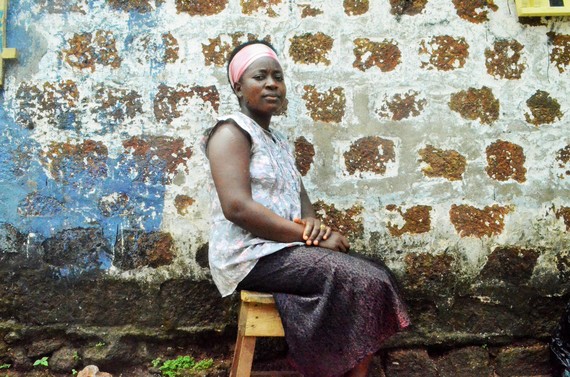
PhotoCredit: Jaime Yaya Barry | Nurse Magdalene
We take five, a breather. I look around the room at the women. It is brightly painted in EXCEL colors, an organization founded by Yeniva Sisay-Sogbeh an educationist and mentor to the women in the program. The colour is a bright reminder that despite everything, this is a place for survivors. Those who lived.
When we call everyone back in, we ask each woman to select a colored sticky note to place against her current feeling outlined on the white board – a visual mapping of where each woman is emotionally. Magdalene places her yellow sticky note next to depressed, but then she tells Femie, EXCEL’s intern, that she isn’t exactly depressed, she is discouraged.
I ask Magdalene to come up to the front of the room with me and explain why she felt discouraged.
“People still look at me like I am dirty, like I am sick. They still have that frightened – she is a survivor of Ebola – type of look on their faces when they talk to me. No one, not the government or minister, no one has come to me and said thank you, thank you for standing at the frontline of the battle, thank you for surviving, thank you for coming back to work. I just get looked at like I am a disease”
This is when Magdalene falls apart on my arms, her cries are belly deep. She finally bursts open and everything comes out, all the stuff that she wants to keep inside rushes out.
For the last four months my team and I have been working with twenty women who survived Ebola in Sierra Leone. All of our women are based in Freetown, most living on the out skirts. Some survivors are strung closely together having contracted the virus through a single visit to a neighbor’s daughter who had fallen ill. Others are quite young and newly orphaned. All of them however, are struggling to bloom in a climate not quite suited to their immediate needs.
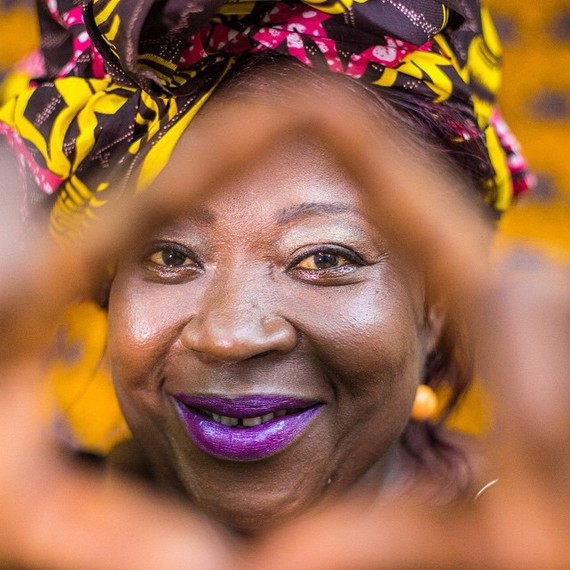
PhotoCredit: Michael Duff | Nurse Fatmata Johnny
It estimated that there are over 4,000 Ebola survivors in Sierra Leone today. This figure is not disaggregated by gender, district or clustered into demographics – nurses, orphans or any other important category necessary for targeted social interventions to occur. The reason is simple; lack of solid and consistent record keeping from the onset of an outbreak that threw the country off guard. Poor data collection resulted in scattered approaches to supporting Ebola survivors re-integrate back into society. Instead pyscho-social, economic, educational and health services for survivors exist in isolated pockets, further reinforcing the fragility of a social system that continues to fail them. Very little investment has been directed to holistic social, economic, health and education development of Ebola survivors. The repercussions of this gap are beginning to surface.
My heart often thuds when I make weekly calls to our survivors and hear about those who are ill, lost their home, or when a young girl in the program did not pass her exam. The worry heightened during September 16th heavy floods in Freetown which left over 3,000 people displaced. My frustration also stems from the fact that I know that it does not have to be this way. That if there were better planning, consolidated and timely release of resources, there would exist a more inclusive system of helping survivors get back on their feet.
For now, the alternative is to create space for dialogue which we hope will strengthen advocacy efforts for concerted investment to be made towards Ebola survivors – even more so for health care workers. Nurses like Magdalene are in the hundreds, these frontline soldiers are yet to be given proper acknowledgement for service to their country. And Magdalene’s beckons us not to forget.
*Fatou Wurie is an AWDF African Women Writers 2015 participant. She is a writer and activist whose articles appear in the Huffington Post and TheJournalist among others. Read her original article here

